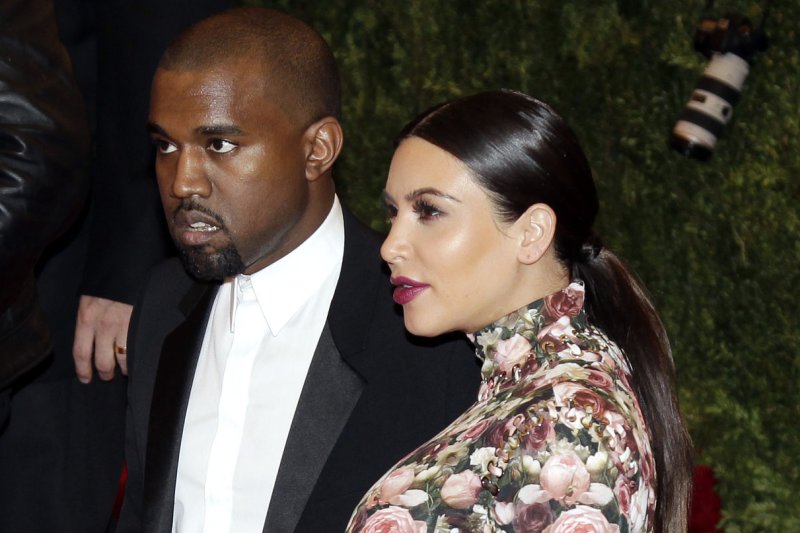(UPI) -- Keeping Up With the Kardashians cameras were obviously rolling when Kanye West proposed to Kim Kardashian at San Francisco's AT&T Park a few weeks ago, when the 36-year-old rapper had "PLEASE MARRY MEEE!!! written in giant letters on the Jumbotron -- and Kardashian essentially lives off of public consumption of her private life. But that doesn't mean that the couple wanted people to see footage of their engagement without permission.
West and Kardashian have sued YouTube co-founder Chad Hurley for sneaking into their engagement without an invitation and uploading video footage of the event to his startup MixBit.
According to documents obtained by The Hollywood Reporter, the couple allegedly allowed Hurley to stay on condition that he sign a confidentiality agreement. The lawsuit claims that he violated those restrictions by publishing his video.
Hurley apologized to the Kardashians and said he only uploaded video after seeing other photos and videos on Instagram.
"Hurley is well aware of such contractual restrictions -- including not to usurp a person's right to tell a story on his or her own terms, and for his or her own emotional and financial benefit," the suit reads. "Hurley proceeded to try to turn the event into one starring himself, broadcasting the images he knew were the exclusive property rights of someone else."
The suit also acknowledges that Kardashian and West had given rights to MC Cable Television, part of the Kardashians' E! network.
“Kanye West and Kim Kardashian are entertainers. Entertainers get paid for their work,” the suit continues.
The value of Kardashian’s and West’s rights of publicity in the future has been diminished because defendants, through their conduct, have cast a cloud on the exclusivity of any such future rights. Being under the belief that their planned broadcast may be upstaged prior to its publication, purchasers and licensees will not value such intellectual property rights as highly, their revenue sources, including advertisers, will not pay as much for broadcast rights tied to such events, and the value not only of the Event, but of future events, will therefore be diminished, with potential buyers and licensees offering reduced consideration for such rights.







